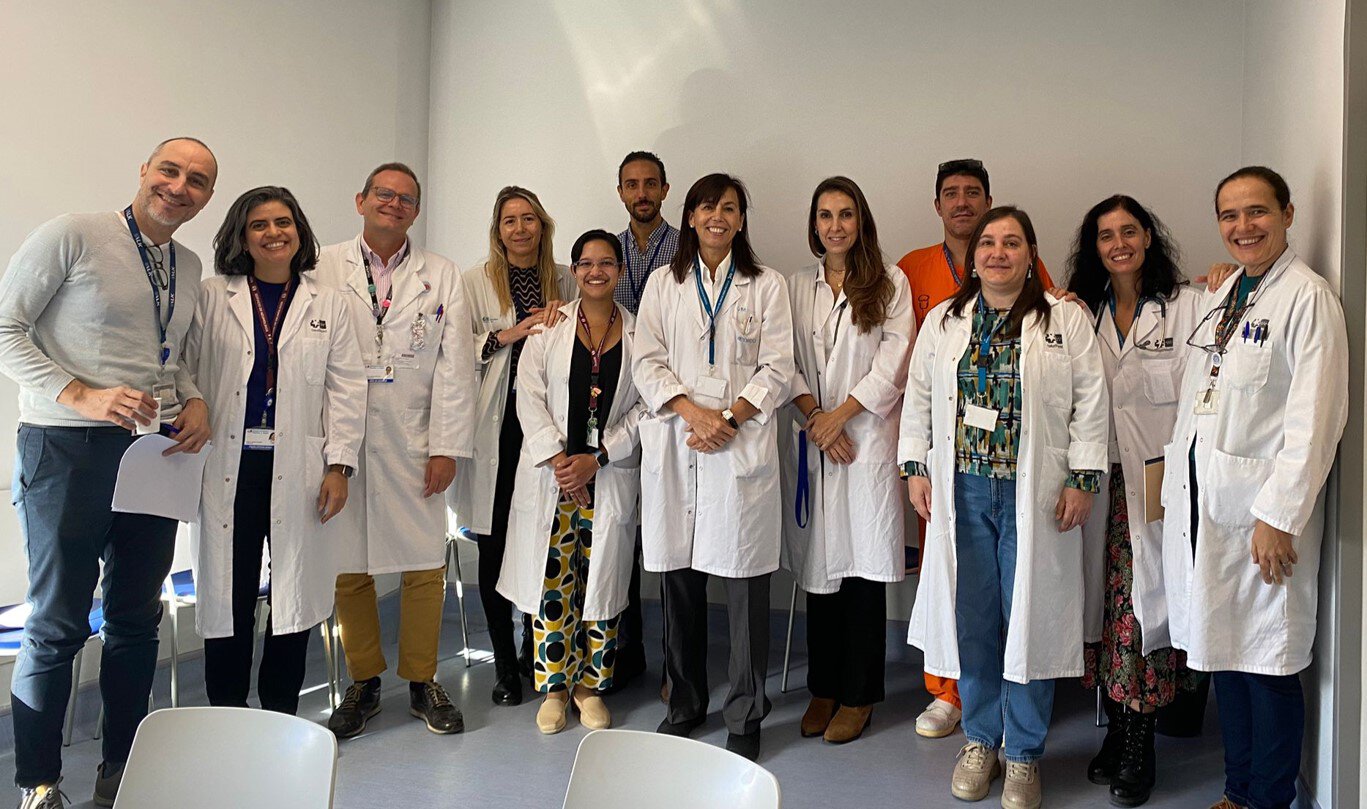Translational lung cancer research group
The Lung Cancer Translational Research Group (GITCaP) is dedicated to the research and treatment of thoracic tumors, with a multidisciplinary team of oncologists, surgeons, pathologists, radiologists, pulmonologists and other specialists. Their lines of research focus on identifying predictive markers of treatment efficacy and improving patient survival and quality of life. In addition, they collaborate in clinical trials and projects on microbiota, blood biomarkers, cancer in non-smokers and the impact of radon. They also investigate the use of artificial intelligence in radiology and the promotion of physical exercise to reduce inflammation.
Collaborating Staff
- María Eugenia Olmedo García
- Ana Gómez Rueda
- Yolanda Lage Alfranca
- Miguel García Pardo de Santayana
- Margaret Lario Martínez
- Alberto Cabañero Sánchez
- Rosa Mariela Mirambeaux Villalona
- Paola Lucía Arrieta Narváez
- Luis Gorospe Sarasúa
- José Javier Alarcón Rodríguez
- Patricia Paredes Rodriguez
- Gemma María Muñoz Molina
- Amparo Benito Berlinches
- Jesús Chamorro Pérez
- Natalia Isabel Torres Calcines

Collaborating Staff
- María Eugenia Olmedo García
- Ana Gómez Rueda
- Yolanda Lage Alfranca
- Miguel García Pardo de Santayana
- Margaret Lario Martínez
- Alberto Cabañero Sánchez
- Rosa Mariela Mirambeaux Villalona
- Paola Lucía Arrieta Narváez
- Luis Gorospe Sarasúa
- José Javier Alarcón Rodríguez
- Patricia Paredes Rodriguez
- Gemma María Muñoz Molina
- Amparo Benito Berlinches
- Jesús Chamorro Pérez
- Natalia Isabel Torres Calcines
Strategic objectives
- To validate predictive biomarkers that allow the selection of individuals with a higher probability of response to lung cancer treatment.
- To integrate knowledge derived from the study of the microbiota in order to develop new prognostic and predictive biomarkers.
- To develop in vitro and in vivo models from patient samples to test new therapeutic strategies.
- To promote the applicability of the group's research and the validation of its findings in order to be able to transfer its results to healthcare practice.
- To strengthen collaboration with national and international research teams of excellence through joint projects in the areas of interest of our group.
Research lines
- Identification of new molecular biomarkers for diagnostic, prognostic and predictive purposes with special interest in immunotherapy and microbiota in lung cancer.
- Impact of gender as a predictor of efficacy and toxicity of treatments in lung cancer patients, especially in the field of microbiota.)
- Identification, validation and implementation of biomarkers in blood, including circulating tumor DNA in lung cancer.
- Development of personalized and precision medicine in oncology to increase the efficacy of current therapeutic strategies.
- Impact of radon gas on molecular alterations in lung cancer.
- Impact of cardiac and respiratory comorbidities in lung cancer.
Location
Hospital Universitario Ramón y Cajal
Medical Oncology Service. Floor -2D
Phone: +34-913369159
pilargarridol@gmail.com
Keywords
Non-small cell lung cancer, Small cell lung cancer, Adenocarcinoma lung, Biomarkers, Liquid biopsy, Microbiota, Gender, Radon, Physical exercise, Radiomics, Cardiotoxicity.
